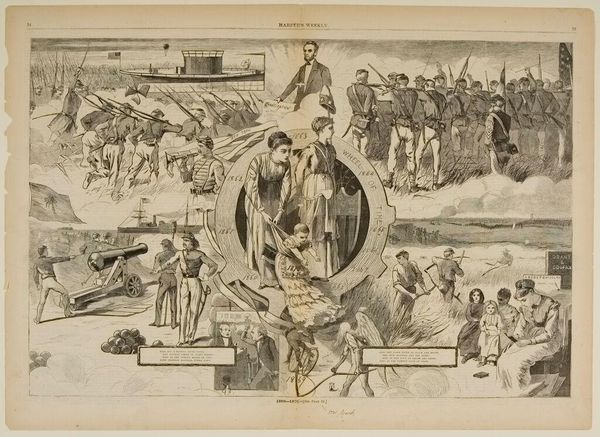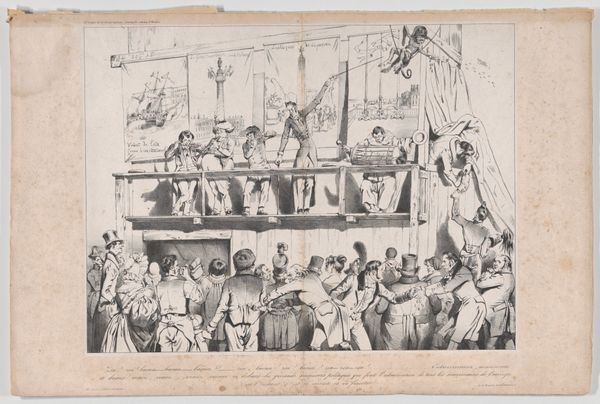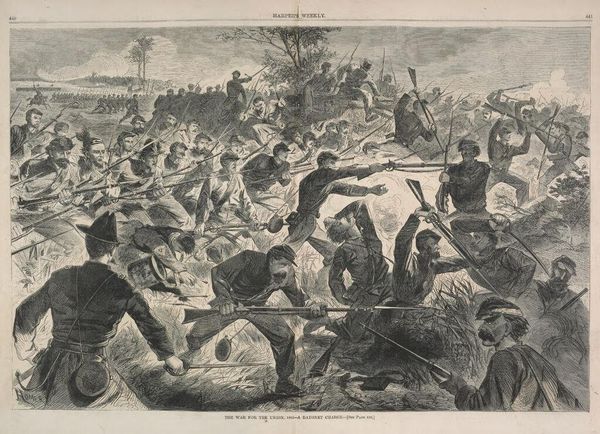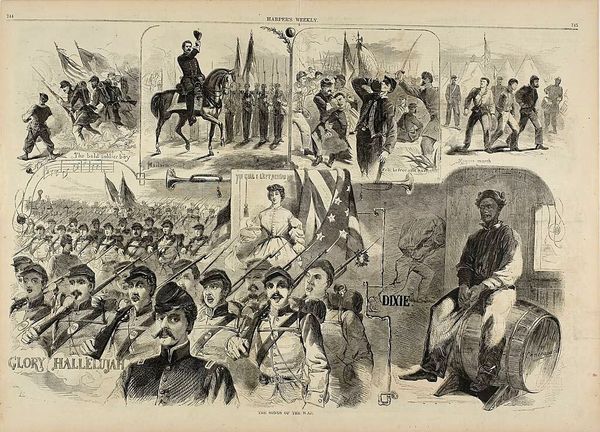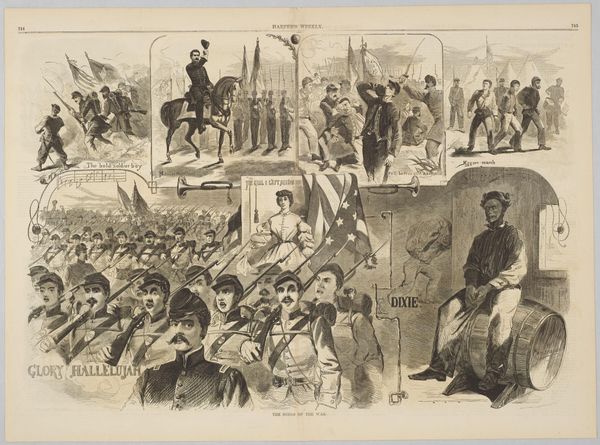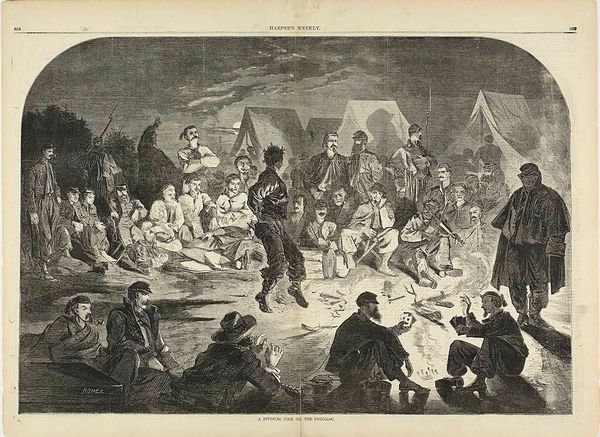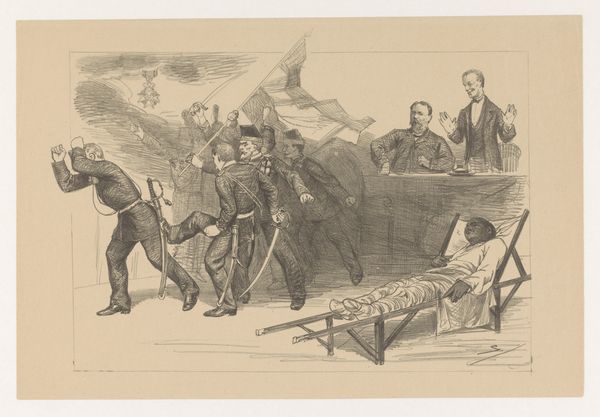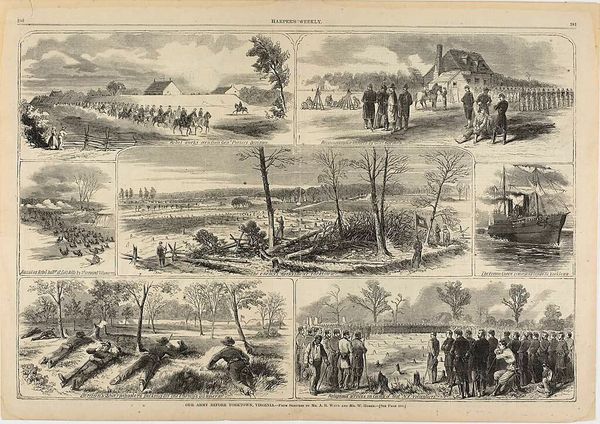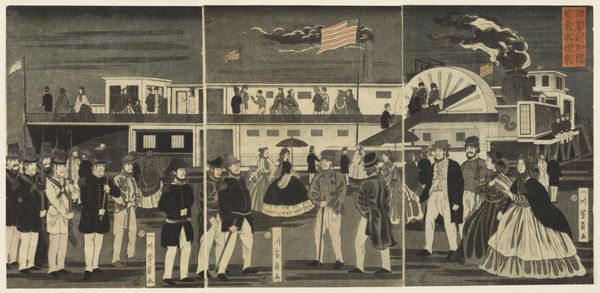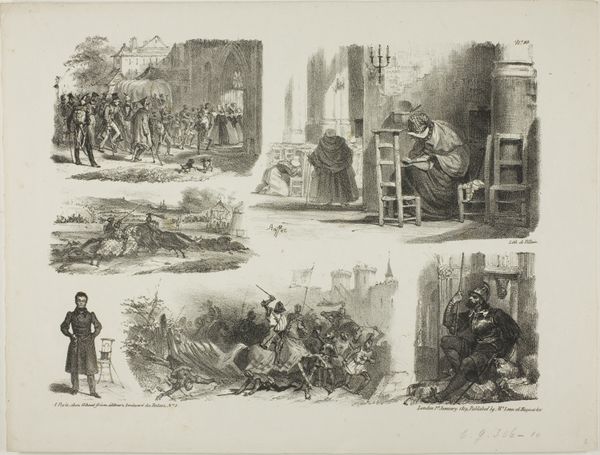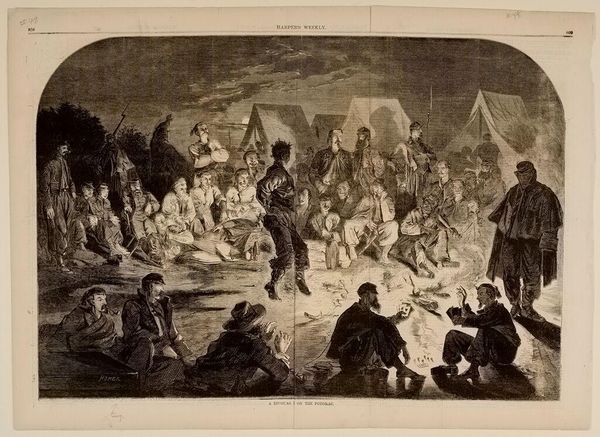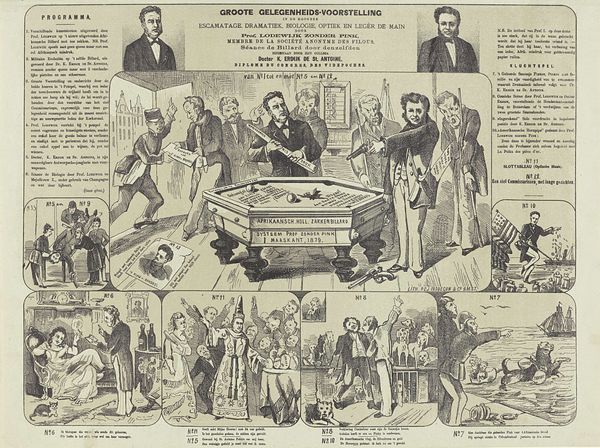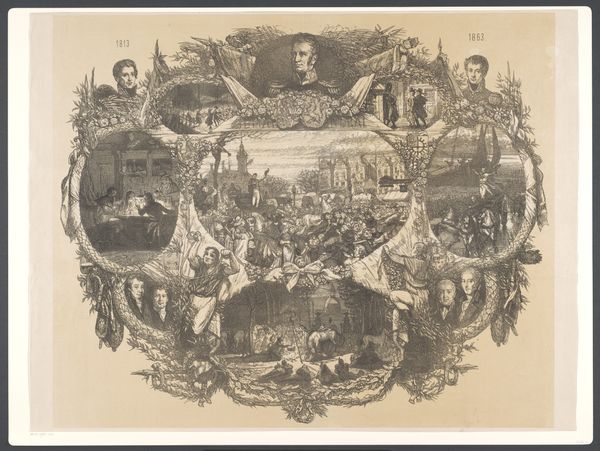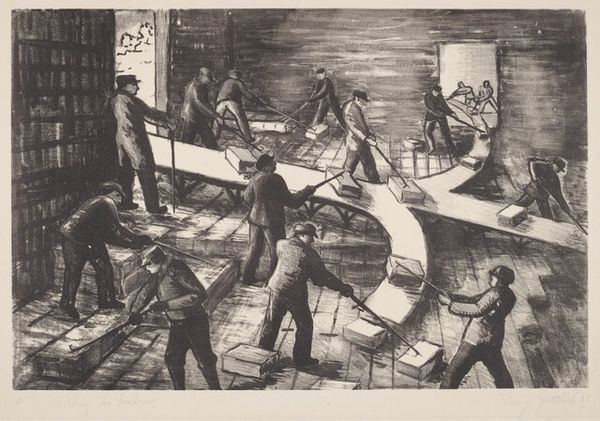
drawing, print, paper, ink, engraving
#
drawing
#
narrative-art
#
pen drawing
# print
#
paper
#
ink
#
history-painting
#
academic-art
#
engraving
Dimensions: 340 × 519 mm (image); 389 × 559 mm (sheet)
Copyright: Public Domain
Winslow Homer made this print between 1860 and 1870 for Harper's Weekly, a popular magazine that shaped public opinion in the United States. It presents a 'Wheel of Time' showing how the Civil War and Reconstruction changed the nation. The design places the suffering of enslaved people at the center, surrounded by scenes of battle and progress. Note how Homer frames emancipation as a historical process, a wheel turning slowly towards the promise of equality. This imagery draws on the cultural references of its day, where 'progress' was a ubiquitous ideal in American public life. But what kind of progress is this? With its scenes of freed slaves learning to read, the image presents the formerly enslaved as subjects of education and civility, as if they are owing something to the people that enslaved them. Homer’s illustration presents a view of the war that is both celebratory and self-serving. By studying magazines like Harper’s Weekly, alongside census data, political speeches, and other records, we can better understand the complex social and institutional contexts that shaped Winslow Homer’s art.
Comments
No comments
Be the first to comment and join the conversation on the ultimate creative platform.
